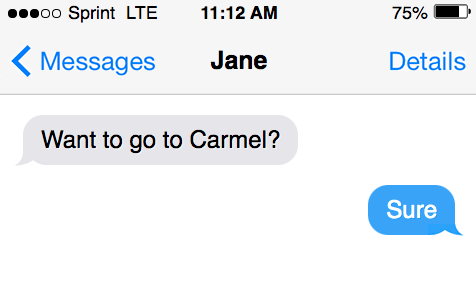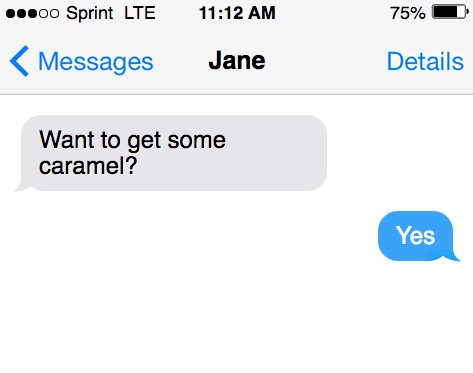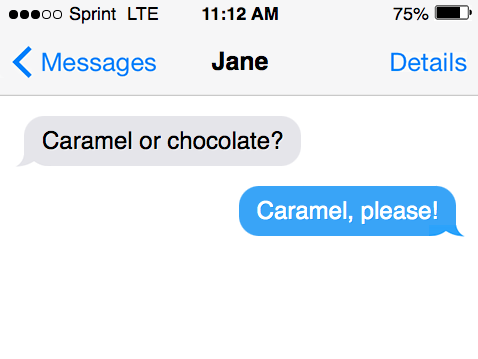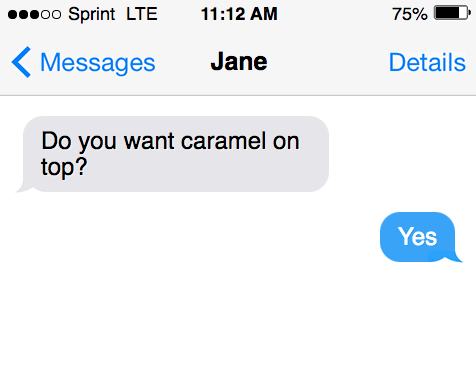Is it caramel or carmel? One refers to the sticky, chewy, and sweet candy made from butter, milk, and sugar. The other is only two syllables and a beachside city in California.
Learn the difference carmel and caramel, and write using proper English. Read on to learn the proper usage of carmel or caramel.
What’s the difference between carmel vs caramel?
Is it pronounced car·a·mel, with three syllables, or car·mel, with only two syllables? Which is the correct pronunciation?
While they share similar spellings, the appropriate choice depends on which noun is referenced, and the right word given the context in which it’s used.
Watch this comparison
Both carmel and caramel are nouns; however, Carmel (pronounced karr mel,) is a proper noun, whereas caramel is a common noun or general noun.
Certain places pronounce the word with an emphasis on its first syllable: car. Other places pronounce the first syllable closer to the ‘care.’

Carmel is a proper noun as it’s the name of the town Carmel by the Sea.
Caramel (pronounced like karr uh mel), is the correct spelling for the light brown sweet treat, dessert and chewy candy that comes in various kinds of treats. These should sound familiar, or maybe, a little too familiar (because who doesn’t love a sugary innuendo?)
- Soft caramels
- Caramel apples
- Caramelized sugar
- Salted caramel
The relevant question for which is the correct word choice and spelling depends on whether what’s written is the name of the hard candy and sweet food (caramel), or the proper noun and name of the place: Mount Carmel, or Carmel by the sea, in California.
Fun Fact:
Milton’s Hershey company was originally a subsidiary of his parent company: the Lancaster Caramel Company.
Hershey ended up selling the Lancaster Caramel Company for one million dollars, claiming that “Caramels are just a fad.”
Answer:
If it’s the dessert and common noun (think Willy Wonka and his feathery sweets,) the correct spelling and word choice is caramel.
If it’s in reference to the place and proper noun, while much less commonly used, the correct spelling here is Carmel.
Evidently, these are two entirely distinct words with different meanings, pronunciations, and spellings. Make sure not to mistake the two in writing to avoid further confusion!

What is Caramel?
Caramel, with three syllables, is a food item made from butter, sugar, and milk, or sweetened condensed milk. Caramel can also be called caramel candy. Caramel is sometimes used as an ingredient. Other times it’s eaten by itself as a dessert.
Merriam-Webster defines caramel as:
“A usually firm to brittle, golden-brown to dark brown substance that has a sweet, nutty, buttery, or bitter flavor, is obtained by heating sugar at high temperature, and used especially as a coloring and flavoring agent.”—Merriam-Webster.
To pronounce caramel, break it into three parts: car – a – mel.
The verb form of caramel is caramelize. This is a common phrase in culinary arts where sugar is placed on low heat and slowly starts to change color either on its own or through adding water.

What is Carmel?
Carmel is the correct spelling of the town named Carmel by the Sea in California. There are other places that share the name Carmel. The city of Carmel in Indiana, is another example.
There’s also a town called Carmel in Maine, in Penobscot County. New York state’s Putnam County has a town called Carmel, as well.
Carmel is also the name of the mountain range in Israel, Mount Carmel. The was an ancient Judean town called Carmel, Mount Carmel, the mountain range, is in northern Israel and stretches across the Mediterranean sea. Israel’s third largest city, Haifa, is also located across Mount Carmel.
Carmel could also refer to the historical Carmel Mission and present day landmark located in Carmel by the Sea.
The Carmel Mission is the name that was given to the series of Spanish settlements across the west coast of North America which were built in the 16th and 17th century.

Origin of the word caramel
Caramel is likely a loanword from the French caramel. The French borrowed from the Spanish, caramelo, ultimately deriving from the Medieval Latin, cannamellis. This comes from the root Latin words canna + mellis.
Canna is borrowed from the Ancient Greek, meaning “reed,” and mella, which is etymologically inconclusive.
Origin of the word Carmel
In Hebrew, the name Carmel is karmél, meaning “vineyard of El/God.”
Sentences using the word caramel:
- Henry felt like he was knee-deep in sticky, chewy rich caramels: he couldn’t move, yet he was comfortable with the sweetness of it all.
- The ale was an amber color with notes of intense burnt caramel and sweet hop characters on the nose.
- My favorite treat is a caramel sundae with sprinkles, whipped cream, and chocolate chips on top.
- Cooking sugar on low heat melts into caramel, and in cooking terminology is called caramelizing.
The word caramel in pop culture:
“Mr Willy Wonka can make marshmallows that taste of violets, and rich caramels that change colour every ten seconds as you suck them, and little feathery sweets that melt away deliciously the moment you put them between your lips.”—Roald Dahl, Willy Wonka and the Chocolate Factory (1964.)
Sentences using the word carmel
- I’m hoping to visit the beachside town Carmel by the Sea; along the west coast of California, one day.
- I’ve heard of people hiking Mount Carmel in Israel. I’m afraid of heights, otherwise I would climb the mountain too.
- Carmel is a suburban city in Indiana with a population of roughly 100,000.
- There’s a city called Carmel in both the Sunshine State and the Roundabout State in the US.
- Carmel is a popular Hebrew name that’s common in Israel, and means “garden, or vineyard.”
In review
The difference between Carmel and caramel is that the former is a proper noun and name of several places in the world.
The latter, caramel, is a common noun, and the correct spelling to refer to the chewy dessert, or sometimes hard candy.
Want to learn more grammar rules?
This is the ‘write‘ place! Read our grammar guides on the differences between: ‘Lets or let‘ and ‘The plural of moose‘!
Glossary
- Definition of proper nouns: Proper noun – Wikipedia
- Definition of common nouns: Common noun Definition & Meaning – Merriam-Webster
- Definition of caramel: Caramel Definition & Meaning – Merriam-Webster
Sources
- Hershey Community Archives: Etymology, origin and meaning of caramel by etymonline
- Online etymology: Etymology, origin and meaning of caramel by etymonline
- City of Carmel, Indiana: City of Carmel | Home
- Mount Carmel in northern Israel: Mount Carmel – Wikipedia
- City in California: Carmel-by-the-Sea, California – Wikipedia
- Roald Dahl’s Willy Wonka and the Chocolate Factory: Charlie and the Chocolate Factory – Wikipedia
- The Spanish Carmel Mission: Mission San Carlos Borromeo de Carmelo – Wikipedia
- The verb caramelize: Caramelize Definition & Meaning – Dictionary.com
Inside this article
Fact checked:
Content is rigorously reviewed by a team of qualified and experienced fact checkers. Fact checkers review articles for factual accuracy, relevance, and timeliness. Learn more.
Core lessons
Glossary
- Abstract Noun
- Accusative Case
- Anecdote
- Antonym
- Active Sentence
- Adverb
- Adjective
- Allegory
- Alliteration
- Adjective Clause
- Adjective Phrase
- Ampersand
- Anastrophe
- Adverbial Clause
- Appositive Phrase
- Clause
- Compound Adjective
- Complex Sentence
- Compound Words
- Compound Predicate
- Common Noun
- Comparative Adjective
- Comparative and Superlative
- Compound Noun
- Compound Subject
- Compound Sentence
- Copular Verb
- Collective Noun
- Colloquialism
- Conciseness
- Consonance
- Conditional
- Concrete Noun
- Conjunction
- Conjugation
- Conditional Sentence
- Comma Splice
- Correlative Conjunction
- Coordinating Conjunction
- Coordinate Adjective
- Cumulative Adjective
- Dative Case
- Determiner
- Declarative Sentence
- Declarative Statement
- Direct Object Pronoun
- Direct Object
- Diction
- Diphthong
- Dangling Modifier
- Demonstrative Pronoun
- Demonstrative Adjective
- Direct Characterization
- Definite Article
- Doublespeak
- False Dilemma Fallacy
- Future Perfect Progressive
- Future Simple
- Future Perfect Continuous
- Future Perfect
- First Conditional
- Irregular Adjective
- Irregular Verb
- Imperative Sentence
- Indefinite Article
- Intransitive Verb
- Introductory Phrase
- Indefinite Pronoun
- Indirect Characterization
- Interrogative Sentence
- Intensive Pronoun
- Inanimate Object
- Indefinite Tense
- Infinitive Phrase
- Interjection
- Intensifier
- Infinitive
- Indicative Mood
- Participle
- Parallelism
- Prepositional Phrase
- Past Simple Tense
- Past Continuous Tense
- Past Perfect Tense
- Past Progressive Tense
- Present Simple Tense
- Present Perfect Tense
- Personal Pronoun
- Personification
- Persuasive Writing
- Parallel Structure
- Phrasal Verb
- Predicate Adjective
- Predicate Nominative
- Phonetic Language
- Plural Noun
- Punctuation
- Punctuation Marks
- Preposition
- Preposition of Place
- Parts of Speech
- Possessive Adjective
- Possessive Determiner
- Possessive Case
- Possessive Noun
- Proper Adjective
- Proper Noun
- Present Participle
- Prefix
- Predicate



